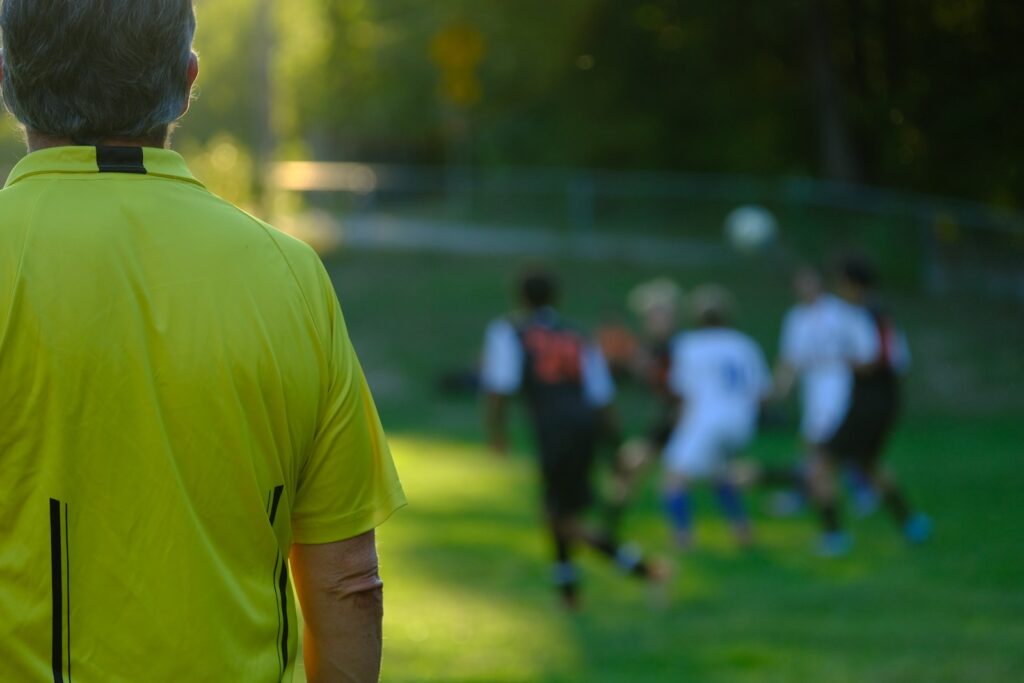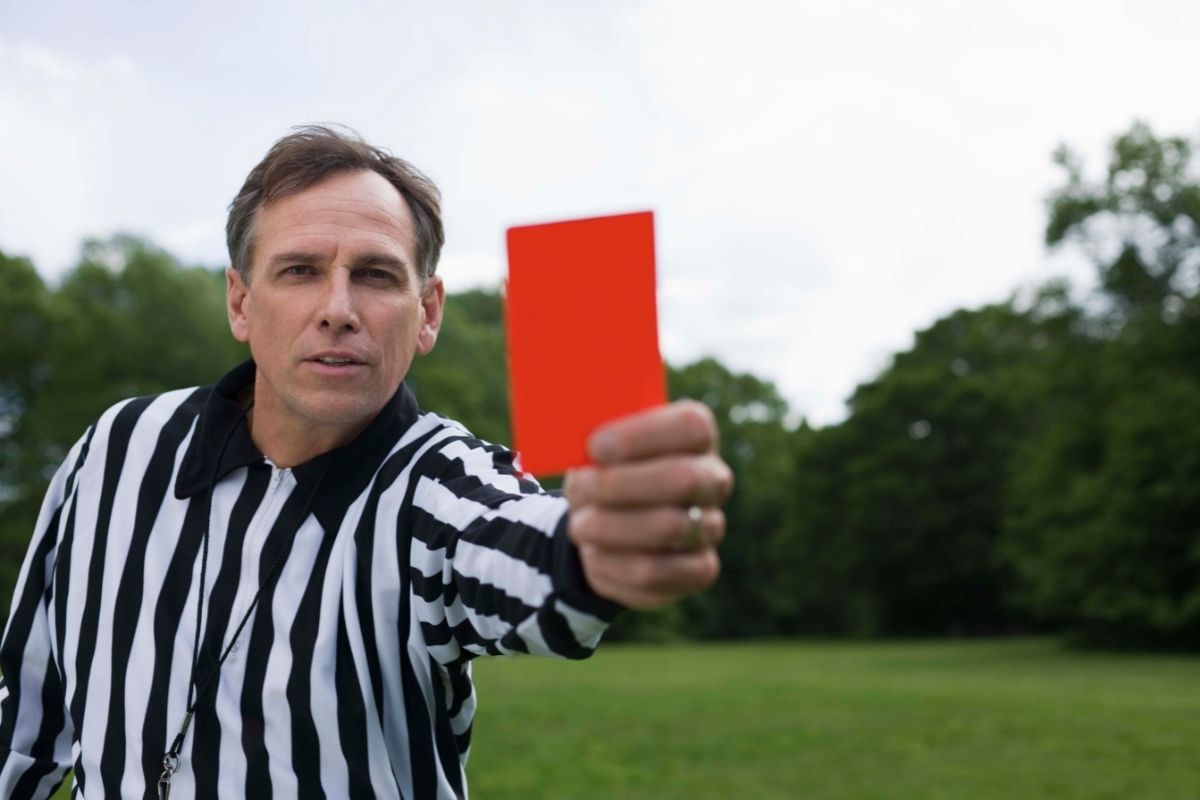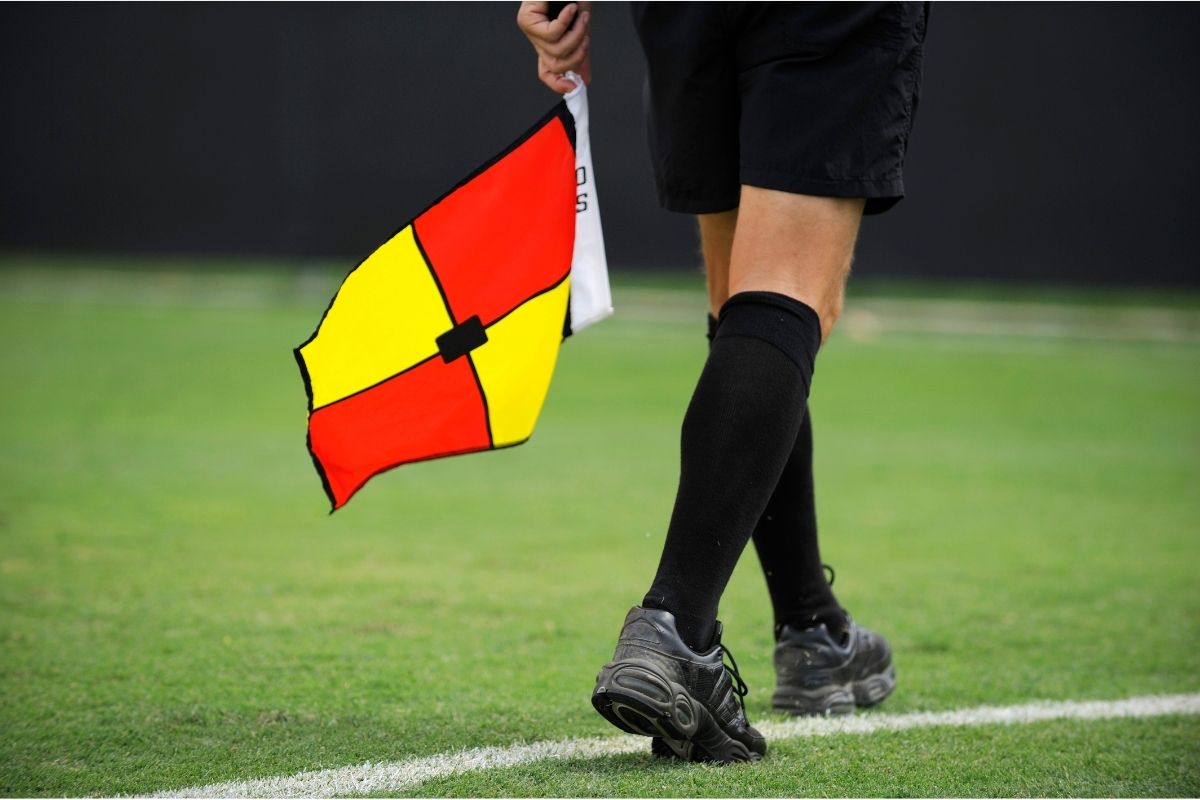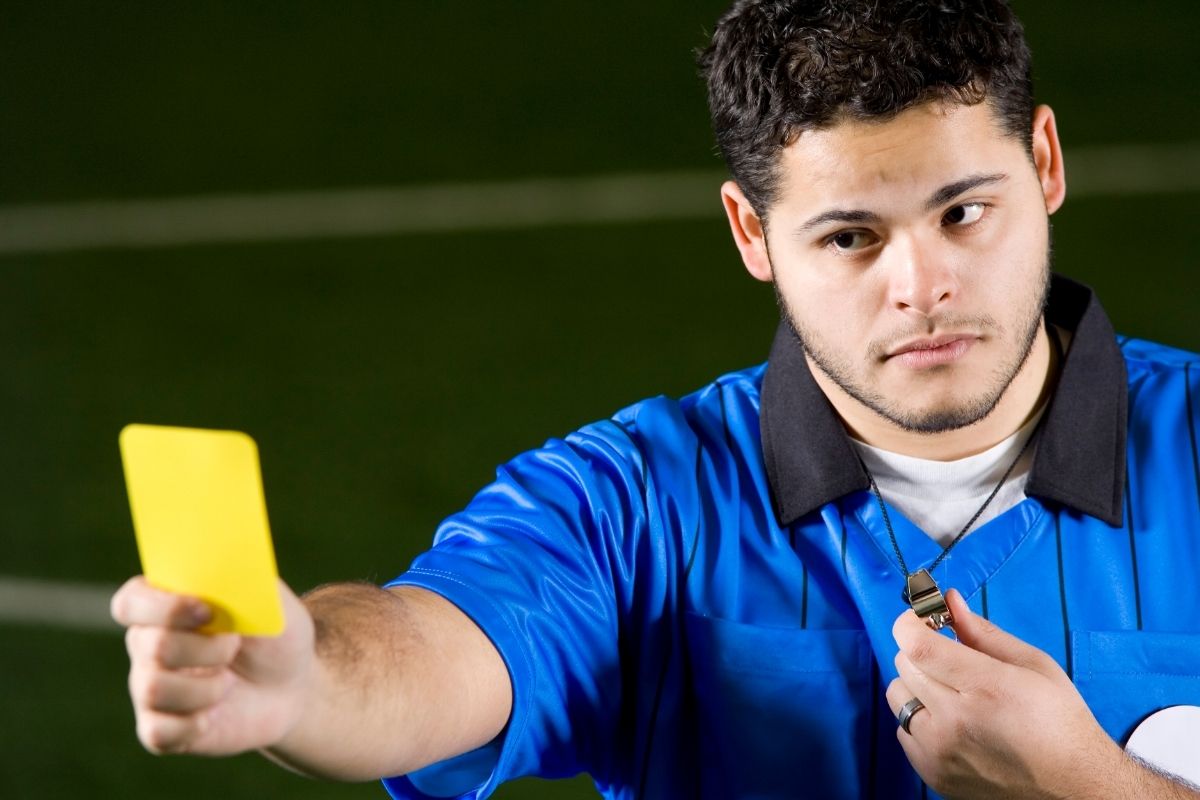Soccer is a fast-paced sport requiring quick reflexes and precise movements from players and referees. Unfortunately, sometimes referees can find themselves in the wrong place at the wrong time, leading to collisions with players and potentially altering the game’s outcome. When a referee gets in the way during a soccer match, it can significantly impact the game and the players involved.
In some cases, a referee getting in the way can cause a momentary disruption in play. However, in more serious instances, a collision with a referee can injure the player, the referee, or both. This can lead to heated debates between teams and fans and may even result in disciplinary action or legal consequences for the player involved. As such, players and referees must be aware of their surroundings and avoid collisions whenever possible.


Despite the potential risks, collisions between players and referees are relatively rare in soccer. However, when they do happen, they can significantly impact the game and the players involved. As such, players need to be aware of the referee’s position at all times and for referees need to avoid getting in the way of play whenever possible. By working together, players and referees can help ensure that the soccer game remains safe, fair, and enjoyable for everyone involved.
The Role of the Referee in Soccer
Responsibilities of the Referee
The referee is the match official responsible for enforcing the game’s laws and ensuring the match is played fairly and safely. The referee has the final decision-making authority on the field and is responsible for enforcing the rules, making calls, and managing the game. Some of the key responsibilities of the referee include:
- Starting and stopping the match
- Determining if the ball has crossed the goal line
- Awarding free kicks, penalties, and throw-ins
- Issuing yellow and red cards for misconduct
- Keeping time and ensuring that the game is played within the allotted time
- Managing the behavior of players and coaches
The referee must be knowledgeable about the game’s laws and be able to apply them consistently and fairly. They must also be physically fit and able to keep up with the game’s pace.
The Importance of Referee Decisions
The decisions made by the referee can have a significant impact on the outcome of the match. A bad or missed call can result in a goal being scored or a penalty being awarded, ultimately determining the game’s winner. Therefore, the referee must be objective and impartial and make decisions based on what they see on the field.
The referee must communicate effectively with the players, coaches, and assistant referees. They must be able to explain their decisions and manage any conflicts during the game.
In conclusion, the role of the referee in soccer is crucial to ensuring that the game is played fairly and safely. The referee must be knowledgeable, fit, and able to make decisions objectively and consistently. They must also communicate effectively and manage conflicts on the field.
What Happens When a Referee Gets in the Way?
When a soccer referee gets in the way, it can significantly impact the game. This interference can occur in various ways, and the consequences can range from minor to severe. This section will explore the different types of referee interference and the potential consequences.
Types of Referee Interference
There are several ways a referee can interfere with the game. The most common types of interference include:
- Accidental Interference occurs when the referee unintentionally gets in the way of a player or the ball. It can happen when the referee is trying to keep up with the play or when they are in a position to decide.
- Deliberate Interference occurs when the referee intentionally gets in the way of a player or the ball. It can happen when the referee is trying to slow down the play or when they are trying to prevent a player from taking advantage.
- Injury Interference occurs when the referee is injured during the game and cannot continue. It can happen when the ball hits the referee or when they collide with a player.
Consequences of Referee Interference
The consequences of referee interference can vary depending on the situation. Some of the potential consequences include:
- Play Continues: If the referee’s interference is minimal and does not affect the play, the game will continue as usual.
- Stoppage of Play: If the referee’s interference results in a stoppage of play, the game will be restarted with a drop ball or a free kick, depending on the situation.
- Injury: If the referee is injured during the game, they will be replaced by the fourth official or a substitute referee.
- Misconduct: If the referee’s deliberate interference affects the game’s outcome, they may receive a yellow or red card for misconduct.
- VAR Review: If the referee’s interference results in a goal or a penalty kick, the VAR (Video Assistant Referee) may review the decision to ensure it is fair.
In professional soccer, referee interference is taken very seriously, and referees are trained to avoid getting in the way of the play. However, in amateur soccer, where the quality of refereeing may vary, referee interference is more common.
In conclusion, when a soccer referee gets in the way, it can significantly impact the game. The consequences can range from minor to severe, depending on the type of interference and the situation.
Preventing Referee Interference
Training and Preparation for Referees
One of the primary ways to prevent referee interference in soccer is through effective training and preparation. Referees should be well-versed in the game’s rules and thoroughly understand their roles and responsibilities on the field.
Soccer referees should also be trained in proper positioning and movement to avoid obstructing play or getting in the way of players. This includes being aware of their surroundings and anticipating players’ movements on the field.
Collaboration with Assistant Referees and Fourth Officials
Collaboration with assistant referees and fourth officials is another important aspect of preventing referee interference in soccer. Assistant referees can help the main referee by signaling when the ball goes out of bounds, when a player is offside, or when a foul has been committed.
Officials can also be useful in monitoring the behavior of coaches and players on the sidelines and help ensure that the game runs smoothly and without interruption.
Hand Signals
Hand signals are another tool referees can use to prevent interference with play. Referees can communicate with players and coaches using clear and concise hand signals without interrupting the game’s flow.
Referees should also be aware of the different hand signals used in soccer, such as those used to indicate a foul, a goal kick, or a corner kick. By using these signals consistently and effectively, referees can help to prevent confusion and misunderstandings on the field.
Overall, preventing referee interference in soccer requires effective training, collaboration with assistant referees and fourth officials, and clear communication through hand signals. By following these guidelines, referees can help ensure the game is played fairly and without interruption.
Respecting the Role of the Referee
The Importance of Respect in Soccer
Respect is an essential component of soccer and applies to everyone on the field, including the referees. Players, coaches, assistant referees, and spectators must respect the role of the referee and follow their decisions. Referees are trained to make objective decisions that must be respected, even if they are unpopular.
Respect for the referee is crucial because it helps maintain order on the field. Players who do not respect the referee’s decisions can cause chaos and disrupt the game’s flow. Remembering that referees are human and can make mistakes is also essential. However, players and coaches must not disrespect them for making a mistake.
Consequences of Disrespect
Disrespecting the referee can have severe consequences. Referees can issue warnings, second yellow cards, and send players off the field. When a player receives a warning, the referee will record it in their notebook. If the player receives a second warning, they will receive a second yellow card and be sent off the field.
A player who receives a red card will be sent off the field and cannot be replaced. This can put the player’s team at a severe disadvantage, and the player may face further disciplinary action from their team or league.
In addition to consequences for players, coaches who disrespect the referee may also face disciplinary action. Coaches who continually disrespect the referee may be ejected from the game or face further disciplinary action from their league.
In conclusion, respecting the role of the referee is crucial in soccer. Players, coaches, assistant referees, and spectators must respect the referee’s decisions and follow their instructions. Disrespecting the referee can have severe consequences, including warnings, second yellow cards, and red cards. It is essential to remember that referees are human and can make mistakes. However, players and coaches must respect their decisions, even if they disagree.
- Can You Play Pickleball on Grass? Tips and Tricks - June 12, 2023
- Do Pickleballs Wear Out? Everything You Need to Know - June 12, 2023
- Can You Play Pickleball on Concrete? A Guide to Playing on Hard Surfaces - June 12, 2023








